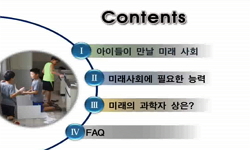Even though we are living in the 21st century, we still can not find Korean values. It is simply the value of the agrarian era. Even if it is a traditional era or an information society, it can not help but pay attention to the ethics called 'Filial P...
http://chineseinput.net/에서 pinyin(병음)방식으로 중국어를 변환할 수 있습니다.
변환된 중국어를 복사하여 사용하시면 됩니다.
- 中文 을 입력하시려면 zhongwen을 입력하시고 space를누르시면됩니다.
- 北京 을 입력하시려면 beijing을 입력하시고 space를 누르시면 됩니다.
조선 중종대 성균관 유생들의 천거 중 효행에 의한 관직 진출 사례 = Examples of advancement into office by Sungkyunkwan’s filial piety recommendation system During King Jungjong in Joseon Dynasty
한글로보기https://www.riss.kr/link?id=A106069656
- 저자
- 발행기관
- 학술지명
- 권호사항
-
발행연도
2018
-
작성언어
-
- 주제어
-
KDC
300
-
자료형태
학술저널
-
수록면
55-69(15쪽)
- 제공처
-
0
상세조회 -
0
다운로드
부가정보
다국어 초록 (Multilingual Abstract)
Apparently, Joseon Dynasty emphasized Confucian values, and emphasized the value of Filial Piety in the first place, placing the highest priority on Practice by Filial Piety in all education. So we define the politics of the Joseon Dynasty as 'Politics by Filial Piety' in a word.
The government set up a recommendation system that emphasizes of Sungkyunkwan Filial Piety education so that it can be put to good use and recommends those who have a good reputation among the Yusang.
The Sungkyunkwan recommendation system in various forms has already been preceded by the previous research. In this article, we have focused on how the problem related to the practice by Filial Piety was actually used in Sungkyunkwan. I looked at who was recommended, what position they were in for the first time, and what the final order was. Although there are not many cases that are recommended for their practice by Filial Piety rather than thought, we can confirm that there are nine actual cases through the Jungjong annals.
Even though we are living in the 21st century, we still can not find Korean values. It is simply the value of the agrarian era. Even if it is a traditional era or an information society, it can not help but pay attention to the ethics called 'Filial Piety' because everyone has parents and is born to the world.
Apparently, Joseon Dynasty emphasized Confucian values, and emphasized the value of Filial Piety in the first place, placing the highest priority on Practice by Filial Piety in all education. So we define the politics of the Joseon Dynasty as 'Politics by Filial Piety' in a word.
The government set up a recommendation system that emphasizes of Sungkyunkwan Filial Piety education so that it can be put to good use and recommends those who have a good reputation among the Yusang.
The Sungkyunkwan recommendation system in various forms has already been preceded by the previous research. In this article, we have focused on how the problem related to the practice by Filial Piety was actually used in Sungkyunkwan. I looked at who was recommended, what position they were in for the first time, and what the final order was. Although there are not many cases that are recommended for their practice by Filial Piety rather than thought, we can confirm that there are nine actual cases through the Jungjong annals.
동일학술지(권/호) 다른 논문
-
일제 강점기의 법률과 효사상에 관한 고찰 - 매헌 윤봉길 의사를 중심으로 -
- 한국청소년효문화학회
- 김용길 ( Kim Yong-kil )
- 2018
-
- 한국청소년효문화학회
- 민정기 ( Min Jeong-ki )
- 2018
-
부모의 효(孝)교육이 청소년 교육문화에 미치는 영향(3) - 전통적인 효문화와 현대적 효문화의 수용 정황을 중심으로 -
- 한국청소년효문화학회
- 김황기 ( Kim Hwang-ki )
- 2018
-
옳고 바른 마음씨 갖게 하기 교육(5) - 『명심보감』「계선(繼善)」편을 중심으로 -
- 한국청소년효문화학회
- 이미숙 ( Lee Mi-sook )
- 2018




 KISS
KISS


